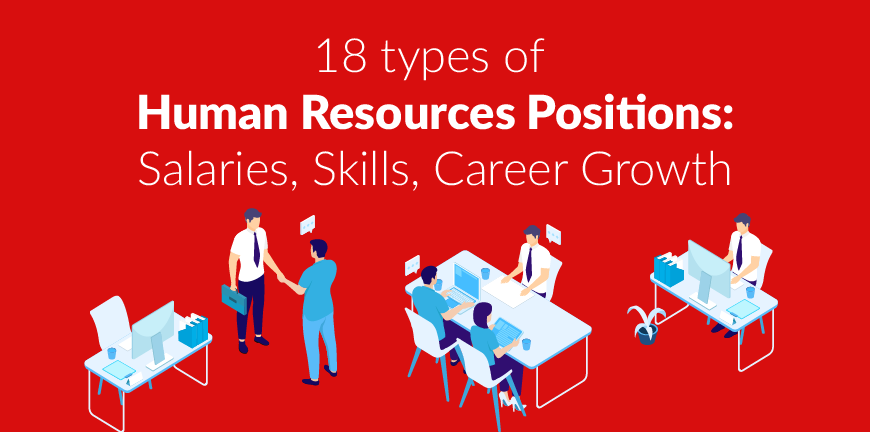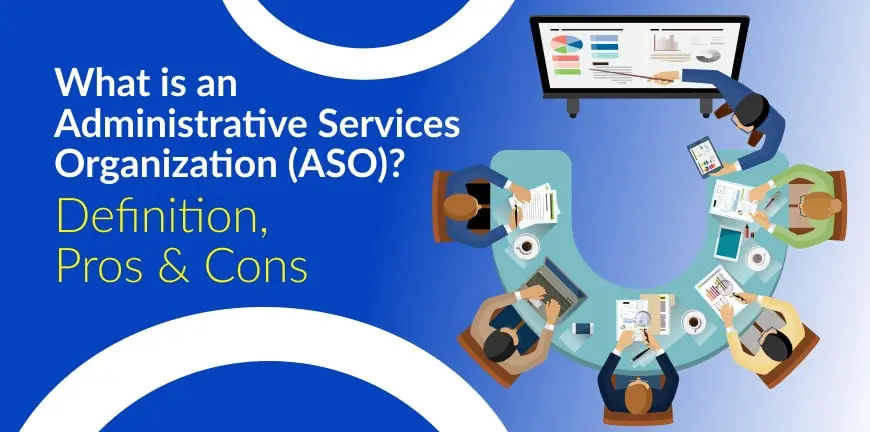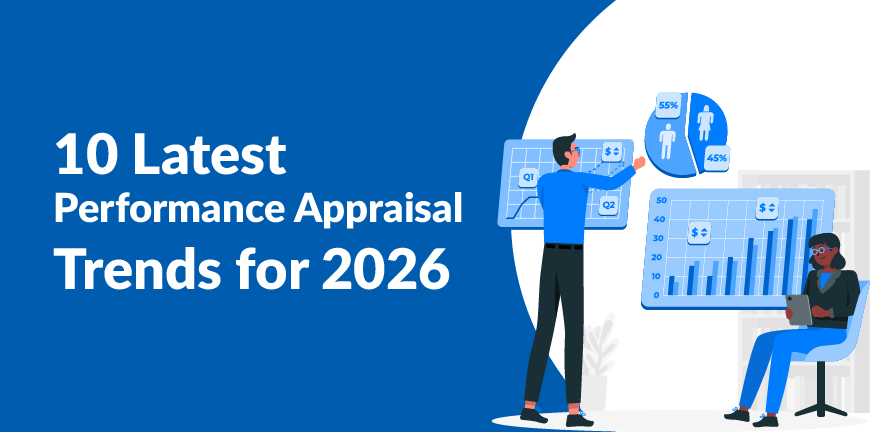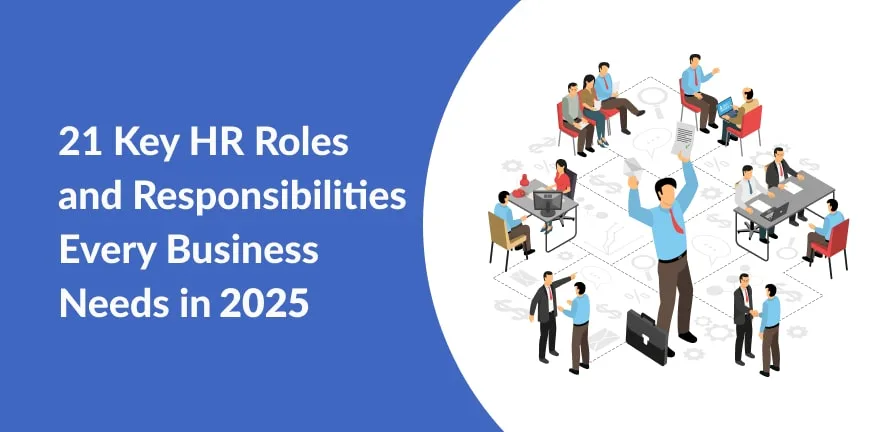
18 Recruiting Strategies to Hire Top Talent in 2026
27/12/2025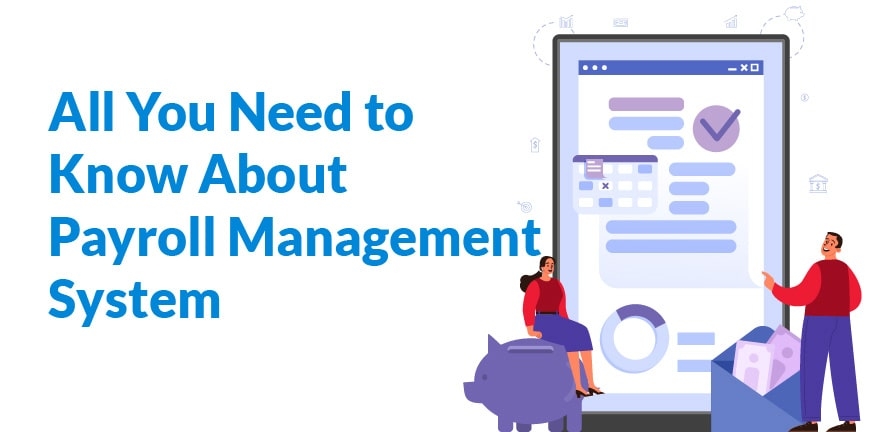
What Is a Payroll Management System? A Complete Guide in 2026
27/12/2025- The Changing Landscape of Human Resources
- Why Are There Different Types of HR Positions?
- What’s the Importance of the HR Department in a Company?
- What are the Top 18 Types of HR (Human Resources)?
- Salary Trends & Market Demand for HR Roles
- What are the Key Skills Required for a Career in Human Resources?
- What Qualifications Are Needed for Different Types of HR Positions?
- What are the Career Growth Opportunities in HR
- How Companies Are Reshaping Their HR Departments?
- How to Choose the Right HR Career Path?
- Why Choose Alp Consulting for HR Solutions?
- Conclusion
- Key Takeaways
- Frequently Asked Questions (FAQs)
The HR function is evolving rapidly, driven by the adoption of AI, workforce transformation, and shifting employee expectations. As businesses expand and workplace dynamics shift, new specialised HR roles are emerging to address talent strategy, culture, compliance, and digital transformation. Understanding these roles is essential for organisations aiming to build agile, future-ready teams. This blog explores the top 18 types of HR positions in 2026, their skills, salaries, and growth potential, helping companies leverage the right expertise for sustainable success.
The Changing Landscape of Human Resources
Technology and changing business priorities are transforming human resources. A strategic change reshapes how HR departments work and adds value.
AI now leads this transformation as a boardroom priority instead of just an IT concern. FTSE 100 companies have appointed Chief AI Officers in 48% of cases. Organisations typically assign two senior leaders to handle AI implementation. HR leaders participate in AI implementation at a rate of 92%, yet only 21% play a key role in AI strategy decisions. This gap presents a chance for HR to take a central role in AI transformation.
Traditional HR models are becoming outdated faster than ever. About 89% of HR functions have restructured or will do so in the next two years. HR technology budgets keep growing, with 55% of companies spending more on HR tech. The AI HR technology market will triple by 2030, which will stimulate more breakthroughs in the field.
These tech changes affect what HR does and how it creates value. HR teams now focus on talent development and organisational culture instead of just administrative work. AI can save more than 120 hours per employee yearly, creating chances to focus on more valuable work.
The digital world faces four major trends:
- AI-driven transformation – HR teams need clear AI strategies with new operating models, showing the highest predicted AI productivity gains at 29%.
- Human-machine workforce reshaping – Companies need “now-next” talent strategies for blended workforces.
- Leadership mobilisation for growth – Leaders who make change routine see three times higher healthy change adoption.
- Culture embedding for performance – Daily work with the desired culture can boost employee performance by up to 34%.
Workforce planning has changed completely. Skills-first approaches now replace traditional job-based models focused on headcount and titles. HR teams must develop new skills like dynamic skills taxonomies and AI-powered talent marketplaces.
Strategic workforce planning still lags in many organisations. While 73% of surveyed organisations do operational workforce planning, few connect their strategies to future skill needs. Only 12% of U.S. HR leaders plan strategically for three or more years ahead.
Employee experience matters more than ever, but challenges remain. About 20% of employees dislike their current employer, but only 7% plan to leave. This gap shows rising risks of “quiet quitting” – where employees stay physically present but mentally check out.
HR professionals must learn new skills. Data literacy, change management, and tech knowledge have become crucial. Teams need to encourage continuous learning as roles combine human judgment with machine intelligence.
Digital HR changes take time. Teams need a complete roadmap and proper implementation time. The process should help employees understand how their organisation will grow.
HR departments must update their operating models to work faster and create more strategic value. Many organisations explore generative AI, but only 19% of core HR processes in Europe use this technology. Additionally, about 32% of HR processes remain in pilot phases. This shows huge potential for HR breakthroughs.
Looking toward 2026, HR professionals who become skilled at managing adaptability, trust, and breakthroughs will navigate these changes best. Future success needs both technical knowledge and knowing how to guide organisations through uncertainty.
Why Are There Different Types of HR Positions?
1. Workforce Specialisation for Better HR Outcomes
Different HR job titles exist to manage specialised workforce needs, from recruitment to analytics. This approach diversifies HR roles, ensuring stronger organisational performance & decision-making.
2. Compliance & Risk Management Needs
Distinct HR roles and functions address complex labour, compensation, & diversity regulations. It reduces risk exposure and improves legal& ethical compliance management.
3. Digital Transformation & Technology Integration
Specialised hr department roles support digital transformation, using technology and data to build automated processes, predictive insights, & smarter employee management.
4. Employee Well-Being, Culture & Engagement Focus
Diverse roles in human resources enhance employee well-being, engagement, & learning. This creates healthier workplaces and increases satisfaction, retention, & productivity.
5. Scalability & Strategic Growth Requirements
Varied HR types help companies scale globally, offering tailored expertise in leadership planning, employer branding, remote work, and organisational development.
What’s the Importance of the HR Department in a Company?
Here are 5 reasons that shed light on the importance of the HR department in a company:
1. Ensures the Right Talent is Hired
The HR department sources, screens, & onboards qualified candidates who match company needs, strengthening long-term workforce quality.
2. Builds a Positive and Productive Workplace Culture
HR roles and functions shape organisational culture by supporting communication, employee engagement, workplace harmony, and values that boost morale & collaboration.
3. Manages Legal Compliance & Employee Safety
HR ensures adherence to labour laws, compensation rules, workplace safety standards, and ethical practices, reducing legal and financial risks.
4. Strengthens Employee Learning & Performance Growth
Through training programs, coaching, and development planning, HR helps employees upskill, meet goals, and improve individual & organisational performance.
5. Drives Strategic Business Decisions Using People Analytics
Modern HR uses data insights to improve retention, recruitment, productivity, and workforce planning, directly impacting business success and growth.
What are the Top 18 Types of HR (Human Resources)?
How many types of HR are there? Let’s answer this question once in for all.
A workplace revolution has created a growing need for specialised HR professionals who can guide businesses through complex challenges. Organisations now recognise how strategic people management brings value. Several types of HR functions will become particularly significant for 2026 and beyond. Here are 18 key types of HR positions that are redefining the functioning of the HR department in most companies.
1. HR Data Scientists
HR Data Scientists are leading this development. These types of human resources extract insights from HR data through advanced analytics and machine learning. They uncover patterns, predict employee behaviour, and provide evidence-based recommendations for talent management and retention. Their expertise helps companies make informed workforce decisions. HR Data Scientists earn between INR 7,847,381 and INR 9,619,371 annually, making this one of the highest-paid HR specialisations. Since 63% of employers see skill gaps as their biggest barrier to business transformation, these analytical experts bring increasing value.
2. Employee Well-being and Mental Health Managers
Employee Well-being and Mental Health Managers create complete programs that address physical health, mental health, stress management, and overall employee satisfaction. The World Economic Forum shows that healthy employees are 23% more productive, which makes this role essential. These types of HR professionals typically earn around INR 8,235,532 per year, showing growing organisational investment in employee wellness.
3. Talent Acquisition Specialists
Talent Acquisition Specialists excel at finding, screening, and attracting applicants who meet organisational needs. These types of hr roles involve developing sourcing strategies, managing employer branding, and helping companies attract top talent in competitive labour markets. Their annual salary ranges between INR 5,062,827 and INR 6,159,772. Companies struggle to fill key roles, making these recruitment specialists more valuable than ever.
4. HR Digital Transformation Managers
HR Digital Transformation Managers integrate advanced technology like AI, machine learning, and automation into HR processes. They optimise HR systems, improve employee experiences, and make use of information analytics for strategic decisions. These human resources types play a significant role in preparing organisations for technological changes, as 85% of employers plan to prioritise upskilling their workforce.
5. People Analytics Directors
People Analytics Directors collect and analyse workforce data for strategic decision-making. They use rigorous methodologies to solve complex workforce challenges, unlike traditional HR roles. Their average salary of approximately INR 16,413,179 annually highlights the high value of evidence-based HR expertise.
6. Chief Diversity Officers
Chief Diversity Officers arrange diversity and inclusion goals with business outcomes across organisations. These types of hr functions create unbiased policies for recruitment and promotions to build more equitable workplaces. These professionals earn an average annual salary of INR 16,388,708. Moreover, companies now see them as essential to business success, recognising that diversity and inclusion drive innovation and competitive advantage.
7. Remote Work Strategists
Remote Work Strategists design and implement remote work policies, tools, and practices to increase efficiency, engagement, and work-life balance. Virtual and hybrid work arrangements have become permanent fixtures, and these types of HR professionals ensure team cohesion and performance regardless of location.
8. HR Business Partners
HR Business Partners collaborate directly with business leaders to arrange HR strategies with company goals. They contribute to financial and operational strategies, unlike traditional HR roles. Their strategic importance is reflected in an average salary of INR 7,287,348. These professionals combine data analytics expertise with coaching skills to serve as strategic advisors.
9. Learning and Development Architects
These types of HR positions are paramount for improving employee engagement & long-term retention. Learning and Development architects design competency-based training roadmaps, leadership academies, & skill-building programs that future-proof talent. They analyse employee performance gaps, curate learning platforms, & boost productivity via structured development initiatives that align employee growth with organisational strategy & transformation goals.
10. HR Compliance & Labour Law Specialists
Professionals in such human resources job roles ensure organisations follow statutory labour regulations, employment laws, workplace safety standards, & policy frameworks to the core. HR compliance & labour law specialists design governance structures, maintain documentation accuracy, manage audits, minimise penalties, & protect organisations from legal tussles, making regulatory alignment a vital HR strength.
11. Workforce Planning & Organisational Design Managers
These types of HR career paths require niche skills to get the best outcomes. Workforce planning & organisational design managers forecast talent needs, model workforce structures, & define organisational hierarchies. They analyse internal capability supply vs. future demand, recommending headcount plans, role redesigns, & flexible resource models that support cost efficiency & evolving business growth cycles.
12. Compensation & Benefits Strategists
Compensation & benefits strategists build competitive pay structures, bonus programs, long-term incentives, insurance plans, and reward frameworks. Such types of human resources jobs strengthen talent acquisition & retention while balancing financial constraints, motivating employees, & supporting performance-driven cultures via equitable compensation architecture.
13. HR Technology Implementation Specialists
Professionals in such HR department roles deploy HRMS, ATS, LMS, & payroll systems across enterprises. They evaluate tech platforms, streamline workflows, automate transactions, and train employees, ensuring digital HR operations run efficiently & generate measurable business value.
14. Employee Relations & Conflict Resolution Managers
They handle employee grievances, negotiate outcomes between teams, improve communication culture, mediate conflicts, and maintain trust. Their focus promotes ethical behaviour, workplace fairness, and psychological safety, strengthening employee satisfaction and organisational reputation.
15. Employer Branding & Recruitment Marketing Managers
These types of human resources specialists elevate employer brand perception, attract relevant talent, and build hiring pipelines using digital campaigns, social media storytelling, & market research. They enhance candidate experience, elevate brand trust, & influence recruitment success rates dramatically.
16. HR Policy & Governance Directors
They develop enterprise-wide HR policies, compliance frameworks, and ethical codes that standardise employee conduct. Their strategic oversight ensures equitable people management, organisational stability, and risk-free operations, especially during rapid expansion or regulatory shifts.
17. Succession Planning & Leadership Development Specialists
These types of human resources positions identify future leaders, evaluate potential, design mentoring frameworks, and build internal talent pipelines. They narrow down leadership gaps, strengthen continuity planning, & improve organisational resilience across senior roles & business units.
18. Employee Experience & Engagement Designers
Such roles in human resources shape retention strategies, feedback channels, recognition systems, and internal communication frameworks. Employee experience & engagement designers focus on enhancing employee morale, workplace culture, belonging, and motivation. This boosts performance levels and reduces attrition rates via meaningful employee-centred experiences.
HR has evolved from administrative support to a strategic business partnership. Organisations need HR professionals who can guide complex technological changes while keeping a human-centred approach. Also, roles focused on employee experience, mental health, and strategic workforce planning show the fastest growth.
HR professionals who want to future-proof their careers should develop skills in data analytics, AI ethics, change management, and digital transformation. Learning to balance technological advancement with employee well-being will set successful HR leaders apart in 2026.
Traditional positions remain fundamental to HR departments. HR Managers earn between INR 5,653,490 and INR 6,919,196, while HR Coordinators make between INR 3,511,070 and INR 5,076,159. Their responsibilities now include new technologies and strategic approaches.
Salary Trends & Market Demand for HR Roles
1. Different types of HR positions have compelling compensation opportunities.
Their salaries vary based on role, experience, and expertise. Recent data shows HR executives earn around $ 21 per hour, which beats the average earnings in many other professions.
2. The financial rewards at the executive level are impressive
Chief People Officers make between INR 30,292,581 and INR 55,437,956 yearly. Also, HR executives can take home up to INR 10,125,654 per year. Talent Acquisition VPs receive INR 21,432,634 to INR 39,743,192 annually, while HR VPs earn between INR 18,648,079 and INR 34,849,126.
3. Director-level specialised positions come with competitive pay packages
Change Management Directors earn INR 16,285,427 to INR 25,314,135 yearly. This translates to roughly USD 185,600 per year with possible bonuses of USD 48,000. Compensation Directors receive between INR 13,416,491 and INR 23,289,004. These figures show how much organisations value expert compensation strategy.
4. Mid-level HR management roles offer attractive earnings
Global HR Managers make INR 14,429,057 to INR 24,723,472 yearly. Diversity Managers follow with INR 11,728,882 to INR 20,420,069. HR Business Partner Managers (INR 8,691,186 to INR 14,513,437) and Recruiting Managers (INR 9,956,893 to INR 17,551,133) represent rewarding career paths.
5. HR professionals often receive more than just base salaries.
Bonuses, stock options, and benefits can boost total earnings. HR executives might get an extra USD 145,000 in cash bonuses and profit sharing, which makes their total package even more attractive.
6. HR professionals are in high demand in 2026
Many types of human resources positions show unemployment rates below the national average of 4.2%. HR assistants reported 3.9% unemployment in Q1 2026. Training specialists (3.0%), HR managers (2.9%), and compensation specialists (2.3%) saw even lower rates.
7. Organisations are actively hiring for different HR job titles
About 63% of HR hiring managers plan to fill both new and vacant positions. Another 32% focus on filling vacant roles. Company growth (53%), new projects (47%), and chances to hire skilled talent from other organisations (41%) drive this hiring surge.
8. Several HR specialities show promising growth ahead
The Bureau of Labour Statistics expects HR manager jobs to grow 5% until 2032, creating 15,500 yearly openings. Occupational health and safety specialists should see a 13% growth, with 17,200 annual openings until 2032.
9. Steady Job Market Expansion in HR
HR management now employs over 3 million workers, with 223,000 new hires last year. The field grows steadily at 6.50% annually, showing continuous expansion.
10. Certifications Directly Influence HR Salary Levels
Certifications play a big role in determining pay. HR professionals with HRIP, PHR, SHRM-CP, or TMP certifications often earn higher starting salaries.
11. Industries Offering Higher HR Salary Potential
Some industries pay premium rates for HR talent. Education, financial services, healthcare, and insurance sectors offer great career growth and salary potential for skilled HR professionals.
12. HR Salary Evolution Driven by Strategic Demands
HR compensation keeps evolving as the field becomes more strategic and specialised. These salary benchmarks and growth trends help professionals make smart career choices in this dynamic field.
What are the Key Skills Required for a Career in Human Resources?
Modern HR success demands skills that go beyond traditional personnel management. Technology continues to reshape workplace dynamics, and HR professionals need competencies that combine technical expertise with people-focused approaches.
1. Strong Technical Skills
Strong technical skills are the foundations of effective HR practice. Research shows that professionals who know HR software can organise employee data more quickly, which makes information readily available.
Cloud-based HR systems have become particularly significant because they centralise data and speed up processes by cutting down department-to-department communication. Applicant Tracking Systems (ATS) knowledge has also become vital. These systems streamline recruitment through automated resume parsing and candidate screening, which reduces workload by a lot.
2. AI Expertise
AI expertise has moved faster from optional to essential. Leaders now see AI tools embedded deeper in HR technology, and professionals must understand what these tools can and cannot do. Recent data shows 79% of leaders consider AI adoption vital to stay competitive, while HR teams lead this transformation.
Companies now just need more AI-skilled workers, which has created a push to improve skills organisation-wide.
3. Data Analysis
Data analysis skills have become crucial for success. AIHR competency research reveals that only 41% of HR professionals know how to boost efficiency and drive business value through technology and data. This gap creates a great chance for professionals to develop analytical expertise. People analytics helps HR teams collect and analyse workforce data, which supports strategic decisions through proven methods.
4. Business Acumen
Business knowledge ranks among HR’s most important skills. HR professionals should understand their organisation’s financial and operational context while arranging their initiatives with the company’s goals. Strategic consulting – creating and implementing solutions while shaping key decisions – has also become essential.
5. Change Management Expertise
Change management expertise grows more valuable as organisations constantly evolve. HR teams must grasp change management basics to guide company transformations. This includes handling resistance, delivering technology training, and clearly explaining change processes.
6. People Skills
People skills remain essential even as technical requirements grow. Good communication helps HR professionals connect with others, share ideas clearly, and give constructive feedback. Empathy: building personal connections and showing real concern creates supportive workplace cultures. Conflict resolution proves especially important since managers spend about 6 hours weekly (15% of their time) solving workplace disputes.
7. Flexibility
Flexibility stands out as a key trait in today’s evolving workplace. About 60% of employers believe flexibility matters more now than in previous decades. HR professionals who quickly adapt to changes in organisational structures, industry trends, and technology keep up with trends.
8. Learning
Learning has ended up becoming non-negotiable. Organisations should promote environments where ongoing education thrives through regular training, workshops, and knowledge sharing. HR professionals who check their skills often, use online learning platforms, and embrace growth position themselves to succeed in this dynamic field.
HR practitioners who navigate this complex skill landscape need to balance technical expertise with human-centred abilities to excel in tomorrow’s workplace.
What Qualifications Are Needed for Different Types of HR Positions?
Here are the minimum qualifications necessary to hold different types of human resources positions
| HR Role | Required Qualifications |
| HR Data Scientists | Master’s in HR Analytics / Data Science / Statistics; skills in Python, SQL, AI, HRIS. |
| Employee Well-being & Mental Health Managers | Degree in Psychology / Counselling / HR; certifications in wellness coaching, stress management, and clinical practice. |
| Talent Acquisition Specialists | Bachelor’s in HR / Business; recruitment certifications; knowledge of sourcing tools & employer branding. |
| HR Digital Transformation Managers | MBA/PGDM HR + tech background; certifications in HRIS, automation, AI tools, digital HR systems. |
| People Analytics Directors | Master’s/PhD in Analytics / HR; statistical modelling skills; leadership & data governance experience. |
| Chief Diversity Officers | Bachelor’s or Master’s in HR/DEI studies; DEI certifications; employment law & leadership experience. |
| Remote Work Strategists | HR/Business degree; remote operations knowledge; project management & virtual team leadership skills. |
| HR Business Partners | MBA/PGDM HR; business strategy knowledge; coaching, analytics & leadership development credentials. |
| Learning & Development Architects | HR/Training degree; instructional design & LMS certifications; strong teaching & coaching background. |
| HR Compliance & Labour Law Specialists | Law degree / HR degree; labour law certifications; strong documentation and statutory audit skills. |
| Workforce Planning & Org Design Managers | MBA/HR certification; organisational design knowledge; analytics & modelling experience. |
| Compensation & Benefits Strategists | MBA/Finance or HR; C&B certification; strong financial modelling & benchmarking skills. |
| HR Technology Implementation Specialists | IT/HR degree; HR tech certifications (HRMS, ATS, LMS); ERP implementation experience. |
| Employee Relations & Conflict Resolution Managers | HR/Law degree; mediation training; performance management & communication expertise. |
| Employer Branding & Recruitment Marketing Managers | Marketing/HR degree; social media certification; brand communication & digital storytelling skills. |
| HR Policy & Governance Directors | MBA HR; legal and policy expertise; governance & audit management background. |
| Succession Planning & Leadership Development Specialists | HR degree; leadership coaching certification; high-potential talent evaluation experience. |
| Employee Experience & Engagement Designers | HR/Psychology degree; EX/UX certification; culture shaping, communication, & survey analytics skills. |
What are the Career Growth Opportunities in HR
HR career paths have grown exponentially, and professionals now have many opportunities to specialise and advance based on their strengths and interests. The old way of climbing the corporate ladder has evolved. HR professionals can now move both up and sideways in their careers.
Professional development is the lifeblood of HR career advancement. HR professionals with certifications need to get 66.67 hours of professional development activities in each three-year CPD cycle. This approach keeps practitioners up to date with the latest best practices. HR professionals can build vital skills in strategic planning, employee engagement, diversity and inclusion, change management, and talent development through focused development activities.
Professional associations give valuable resources and networking opportunities to boost credentials. Being part of respected organisations like the Human Resources Professionals Association (HRPA), Human Resource Certification Institute (HRCI), and Society for Human Resource Management (SHRM) opens doors to a vast network of HR professionals. These connections help advance careers through mentorship and job opportunities that might not be available otherwise.
Certification programs are another powerful way to grow your career. These credentials help careers in two main ways: they provide clear learning paths to build core knowledge and add recognised qualifications to your résumé. Here are some popular certifications that can boost your earning potential:
- Human Resources Information Program (HRIP)
- Professional in Human Resources (PHR)
- SHRM Certified Professional (SHRM-CP)
- Talent Management Practitioner (TMP)
The HR career paths world now covers five distinct role categories, each with unique growth paths:
- HR service provider roles focus on administrative work and employee support. These positions, like HR administrators and assistants, often mark the start of an HR career.
- Solution provider roles tackle specific organisational challenges. This category includes benefits managers, compensation specialists, and talent acquisition specialists.
- HR consultants and business partners work closely with leadership to line up people strategies with business goals in advisory roles.
- HR directors and organisational development specialists shape company-wide policies and lead transformational initiatives in strategic roles.
- Generalist roles provide detailed HR support across multiple functions. These roles are particularly valuable in smaller organisations.
HR professionals should create “now-next” talent strategies that balance current skill needs with long-term career goals to reach their full potential. This means checking current abilities, finding skill gaps, and making personal development plans that match specific career goals.
Without doubt, being tech-savvy has become vital for career growth. By 2026, five key skills will shape HR leadership opportunities: AI literacy, data fluency, skills-first talent management, digital tool adoption, and ethical leadership. Only 21% of organisations say they can fully use AI in HR functions, which creates big opportunities for professionals who develop these skills.
Hands-on experience matters as much as formal education and certifications. Junior professionals should lead HR projects to show their leadership skills to senior management. This proactive approach speeds up advancement to management roles like HR manager, benefits manager, or compensation specialist.
The HR field offers paths to independence for those with entrepreneurial dreams. Working as an HR consultant or executive recruiter lets professionals use their expertise while having more freedom. HR entrepreneurs might also start recruitment agencies or specialised consulting practices to serve multiple clients.
Career growth in HR needs both strategic planning and flexibility. The profession keeps evolving, and professionals who mix technical expertise with strategic vision will find success in this dynamic field.
How Companies Are Reshaping Their HR Departments?
1. Strategic HR Transformation Accelerates Across Large Enterprises
Large companies are transforming their HR functions at a remarkable rate. Research shows 75% have restructured or are restructuring their approach to people management. Companies now recognise HR’s strategic value in helping navigate recent global challenges.
2. HR Structure Matters Less Than Strategic Alignment
HR’s profile has risen dramatically since 2020. Yet research reveals something unexpected: specific HR structures don’t significantly affect market performance. The placement of HR functions barely impacts the bottom line. What really counts is how HR capabilities line up with business strategy.
3. Rising Demand for Centralised HR Centres of Excellence
Centres of excellence have become the most popular structures, especially in talent management, where consistency and scale matter most. Companies are five times more likely to centralise than decentralise their HR activities. This shift responds to stakeholders who need better workforce metrics, faster digitisation, and improved data responses.
4. HR Restructuring Follows Clear Transformation Stages
HR departments follow clear stages during restructuring. Companies start by evaluating their workforce skills and designing new structures in the planning phase. The communication phase becomes crucial as 73% of employees face high stress during changes. Teams then carefully manage workforce transitions and provide ongoing support during implementation.
5. Multiple New HR Operating Models Are Emerging
Several innovative HR operating models have emerged. The Ulrich+ model adapts the traditional approach by having HR business partners take over execution responsibilities from centres of excellence.
Agile HR uses fewer HRBPs who counsel top management, while pooled resources implement cross-functional projects. EX-driven models prioritise employee experience. Leader-led models shift HR accountability to managers. Machine-powered models use algorithms to inform talent decisions.
6. Huge Technology & AI Potential in HR
HR departments are reimagining their tech capabilities. Only 19% of core HR processes in Europe use generative AI, while 32% remain in pilot phases. This shows a massive technology advancement opportunity.
7. HR Transformation Requires a Mindset Shift, Not Just Structural Change
The mindset shift matters more than structural changes in HR transformation. Greg Till highlights that structure supports strategy; it isn’t the solution itself. HR restructuring works best when it enables new capabilities and methods.
8. HR Transformation Must Be Continuous, Not One-Time
Companies should treat HR restructuring as an ongoing capability rather than a one-time project. Effective transformation relies on a digital mindset, AI-driven skills, and change capacity, helping organisations thrive amid constant evolution.
How to Choose the Right HR Career Path?
1. Choose Your HR Path Based on Personal Strengths & Ambitions
Your unique strengths, interests, and long-term professional goals should guide your HR career path choice. Many professionals reach a point where they need to decide which HR path best lines up with their career dreams and personal qualities.
2. Two Major HR Career Routes: Generalist vs Specialist
HR professionals typically face a choice between two primary career paths: generalist or specialist. Generalists handle a variety of tasks, including recruiting, hiring, training, compensation planning, and policy development—ideal for those who enjoy variety.
3. Generalist Roles vs Specialist Expertise in Large Organisations
Common job titles include HR assistant, HR manager, and chief HR officer. Specialists, on the other hand, build deeper expertise in recruitment, compensation, labour relations, or benefits, especially needed in large organisations.
4. Match Your HR Career to Your Preferred Work Style
Your career goals and work environment preferences should guide whether you become a generalist or a specialist. Generalists excel in dynamic spaces; specialists thrive in targeted problem-solving areas.
5. Entry-Level HR Pathways Begin with Foundational Experience
Entry-level HR roles require initial education and hands-on exposure through internships or temporary work, offering early insights into specific HR domains.
6. HR Welcomes Career Switchers from Diverse Fields
Business experts, teachers, lawyers, and mathematicians can successfully transition into HR niches like compensation, training, or labour relations.
7. Certificates & Micro-Credentials Accelerate HR Career Growth
Certificate programs offer career-changers and professionals specialised learning opportunities that build new skills without pursuing full degrees.
8. Define Your Ideal HR Dream Role First
Start with your dream job and map the required skills and knowledge. If unsure, develop transferable skills while exploring HR areas.
9. HR Depends on Collaboration Between Generalists & Specialists
Companies require both broad-based HR generalists and expert specialists working collaboratively to build a fully functioning, successful HR department.
10. Research HR Roles to Make Informed Career Decisions
Explore different HR job titles to understand responsibilities, qualifications, and growth potential, helping shape a rewarding and well-informed HR career path.
Why Choose Alp Consulting for HR Solutions?
Alp Consulting Ltd, a leading HR solutions provider in India, helps companies hire various types of human resources positions through structured assessment, skill mapping, and personalised guidance. With 30 years of industry experience, Alp connects skilled talent to specialised HR pathways, data analytics, talent acquisition, learning design, digital HR, & more.
The company offers expert counselling, market insights, & role clarity to ensure faster career growth and informed decision-making. Alp’s holistic support makes transitioning, upskilling, and long-term HR planning easier & more effective.
Conclusion
The HR landscape in 2026 is more strategic, data-driven, and employee-centric than ever before. Specialised types of HR like HR Data Scientists, Well-being Managers, and Digital Transformation Leaders are redefining how organisations attract, retain, and grow talent. To stay competitive, HR professionals must embrace technology, develop strong analytical skills, and prioritise employee experience.
Partner with Alp Consulting to access comprehensive HR solutions, from talent acquisition to compliance and digital transformation strategies. Future-proof your HR operations today.
Key Takeaways
- HR roles are becoming specialised, offering deeper expertise in analytics, workforce planning, wellness, and digital transformation.
- AI adoption and HR technology investments are reshaping HR operations and enabling future-ready workforce strategies.
- Employee experience, mental health, and workplace culture have become central priorities for HR success.
- HR career growth now depends on data analytics, certifications, continuous learning, and strategic skill development.
- Partnering with expert HR solution providers like Alp Consulting accelerates hiring, career planning, compliance, and transformation.
Frequently Asked Questions (FAQs)
1. What are the emerging HR roles expected to be in high demand by 2026?
Some of the top human resource types emerging in 2026 include HR Data Scientist, Employee Well-being and Mental Health Manager, Talent Acquisition Specialist, HR Digital Transformation Manager, and People Analytics Director.
2. Which HR positions typically offer the highest salaries?
Executive-level types of HR positions generally command the highest salaries. Chief People Officers can earn between INR 30-55 million annually, while HR executives may earn up to INR 10 million per year.
3. What are the essential skills HR professionals need to develop for future success?
Future-ready HR professionals need a combination of technical and soft skills. Key technical skills include AI fluency, data analysis, and proficiency with HR software systems.
4. How are companies restructuring their HR departments?
About 75% of large companies have restructured or are restructuring their HR functions. Many are adopting centres of excellence models, particularly in talent management areas.
5. What factors should be considered when choosing an HR career path?
When choosing an HR career path, consider your personal strengths, interests, and long-term professional goals. Decide between generalist roles (covering multiple HR functions) and specialist paths (focusing on specific areas like recruitment or compensation).
6. What is the highest-paying HR role?
People Analytics Directors and Chief Diversity Officers are among the highest-paid human resources job roles in India due to specialised, strategic responsibilities.
7. Which HR role is best?
The best HR role depends on strengths; Talent Acquisition, HRBP, and People Analytics offer strong growth, stability, and leadership opportunities.
8. What is the HR function?
HR roles and functions include managing recruitment, development, payroll, compliance, employee relations, & culture to align workforce performance with business goals.
9. What are the 7 HR areas?
Recruitment, training, performance management, compensation, employee relations, HR technology, and workforce planning form the 7 key Indian HR areas.
10. What are the 4 pillars of HR?
Talent acquisition, learning and development, compensation and benefits, and employee relations together form HR’s operational and strategic pillars.
11. What is an HR strategy?
HR strategy aligns people processes with business goals, using talent planning, analytics, and culture-building for sustainable organisational success.
12. Can an HR become a CEO?
Yes, HR leaders can become CEOs; strong people skills, business knowledge, analytics, and organisational insight empower future leadership.
13. What is the hardest part of HR?
Balancing employee expectations with business objectives, managing conflicts, legal compliance, and constant talent shortages challenge Indian HR functions.
14. What is HRBP?
A Human Resources Business Partner aligns HR decisions with business strategy, advising leaders on talent, performance, & organisational effectiveness.
Contact Us For Business Enquiry

Rajkumar Shanmugam
Rajkumar Shanmugam is the Head of HR at ALP Consulting, bringing over 19 years of comprehensive HR leadership experience across India and international markets. His expertise spans talent acquisition, employee relations, performance management, compliance, and HR transformation. Rajkumar has a proven track record of driving people-centric initiatives, enhancing workplace culture, and aligning HR strategy with business goals. With extensive experience in US staffing operations and global mobility, he continues to lead organizational excellence through innovation and employee engagement.

